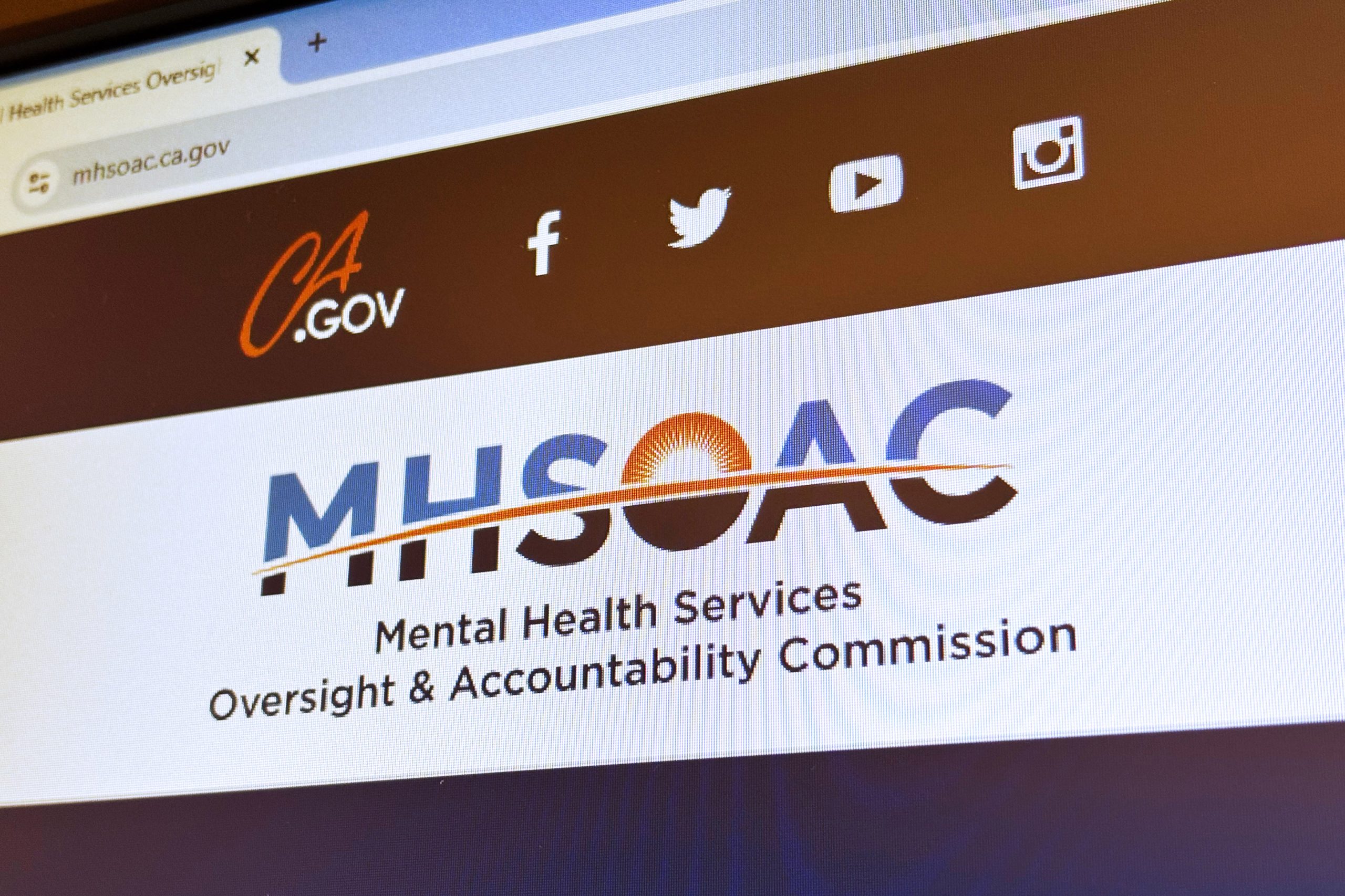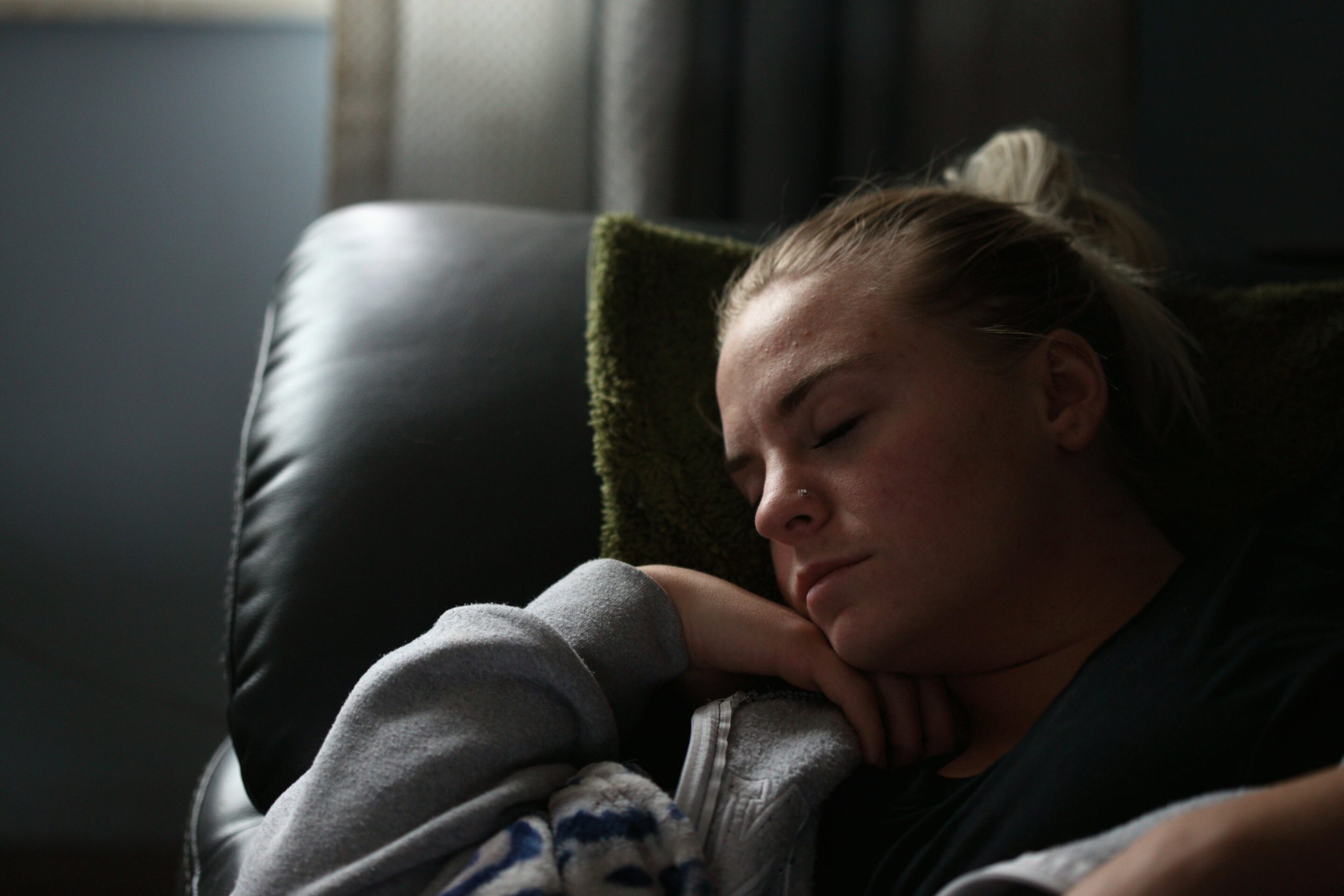California’s mental health commission on Thursday announced its executive director would resign amid revelations that he traveled to the U.K. courtesy of a state vendor while he sought to prevent a budget cut that would have defunded the company’s contract.
Toby Ewing, executive director of the Mental Health Services Oversight and Accountability Commission, will step down effective Nov. 22. Documents obtained by KFF Health News show that he tried in June to protect state funding for Kooth, a London-based digital mental health company with a contract to develop a virtual tool to help California tackle its youth mental health crisis.
He had been on paid administrative leave pending an investigation since September.
Ewing’s resignation was announced after a four-hour closed session of the mental health commission. During a public hearing before the announcement, advocates for mental health services accused the commission of favoring corporations over serving people with mental health and substance use issues.
The commission is an independent body charged with ensuring that funds from a millionaires tax are used appropriately by counties for mental health services.
“You are being co-opted by big corporations,” said Susan Gallagher, executive director of Cal Voices, a mental health advocacy organization, during Thursday’s meeting. “You’re lobbying behind the scenes for these people to get money. That is not your job. You serve the people.”
Ewing declined to comment.
Kooth last year signed a four-year, $271 million contract with the Department of Health Care Services, which is separate from the commission, to create Soluna, a free mental health app for California users ages 13 to 25.
The app, along with one for younger users by the company Brightline, launched in January to fill a perceived need for young Californians and their families to access professional telehealth free of charge. It’s one component of Gov. Gavin Newsom’s $4.7 billion youth mental health plan.
The apps have seen very slow uptake since their launch in January. In May, the Newsom administration proposed a $140 million budget cut for the apps. Both the state Assembly and Senate budget committees proposed eliminating the entire program to save the state $360 million in the face of California’s $45 billion deficit.
But the funding for Kooth’s app wound up restored. It’s unclear why. Emails and calendars reviewed by KFF Health News showed Ewing pressed legislative staffers in June to restore the proposed cut.
About two weeks later, Ewing was accompanied by MHSOAC commissioners Mara Madrigal-Weiss, Bill Brown, and Steve Carnevale on a trip to London. Public disclosure forms show Kooth paid $15,000 in travel expenses for Ewing, Madrigal-Weiss, and Brown. The forms do not show the company paid for Carnevale’s travel.
While Ewing was in London, a colleague told him that the final state budget was approved with funding restored for Kooth’s app. Ewing emailed a Kooth executive ideas to improve its teletherapy app. About a week later he wrote, “We expect you to be involved in whatever we dream up.”
At Thursday’s commission meeting, Stacie Hiramoto, director of the Racial and Ethnic Mental Health Disparities Coalition, said the public will view the London trip as a serious conflict of interest.
“Maybe there was no wrongdoing, and maybe the company was good,” said Hiramoto, referring to Kooth. “But don’t you understand the appearance of the conflict?”
Carnevale said in Thursday’s meeting that the Newsom administration asked the commission to engage the legislature during budget negotiations.
“The governor’s office reached out to us to ask us to help them support the arguments and that’s what we did,” Carnevale said. “We went back and explained our positions on the digital solutions provided generally, without any particular comment on any company or any product in particular.”
Newsom’s office didn’t immediately respond.
Carnevale said the U.K. trip was not related to the budget. He said the trip “was very successful” for exchanging ideas with mental health policy leaders.
DHCS Director Michelle Baass told lawmakers in May that roughly 20,000 of the state’s more than 12.6 million children and young adults had registered on the apps. Together, they had been used for only about 2,800 coaching sessions. The department has not provided more recent figures to KFF Health News.
Madrigal-Weiss defended her support of the mental health apps, lauding the youth-led design. She cited data that a majority of Kooth’s users liked the virtual coaching sessions and more than half were from underserved communities.
According to Kooth’s contract, obtained through a records request early this year, its payment is partially contingent on how many people use its app. Kooth will not get a pay increase until it reaches 366,000 users.
Kooth’s stock price fell about 20% on Thursday after KFF Health News published an article about Ewing’s efforts to restore funding for its contract and the London trip.
Gabe Brison-Trezise contributed to this report.
This article was produced by KFF Health News, which publishes California Healthline, an editorially independent service of the California Health Care Foundation.



